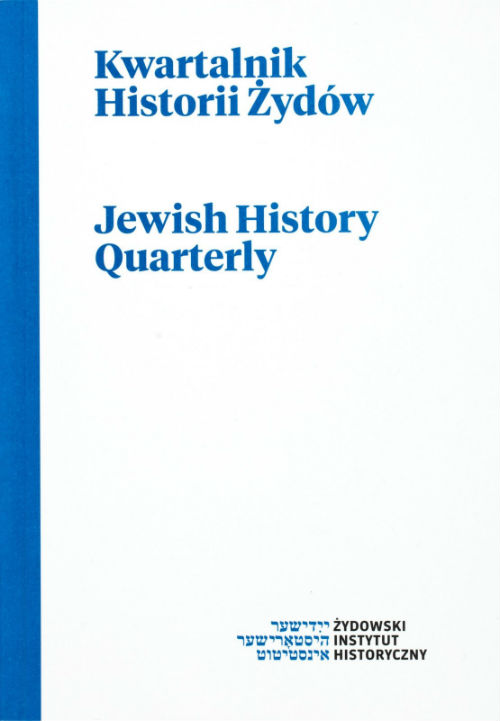Spontane "Volkspogrome" oder Auswuechse der NS-Vernichtungspolitik. Zur Kontroverse um die Radikalisierung der antijuedischen Gewalt im Sommer 1941
Spontaneous "popular pogroms" or morbid outgrowths due to the Nazi policy of extermination? On the the radicalization of anti-Jewish violence in 1941
Author(s): Klaus-Peter FriedrichSubject(s): History
Published by: Żydowski Instytut Historyczny
Keywords: pogroms; World War II; Kaunas; northeastern Poland; Holocaust
Summary/Abstract: Since the 1980s, researchers dealing with the involvement of the Wehrmacht and Nazi security organs in the initial phase of the Holocaust in the newly occupied territories in the western Soviet Union have stressed ‘brutalizing’ factors to explain the excessively murderous behaviour of the agents of the Nazi war machine. One of the elements put forward in order to prove such a ‘brutalization’ were allegedly spontaneous pogroms against Jews perpetrated by locals: Not until the invaders had witnessed these heinous acts were they ready to commit mass murder against the civilian population. A closer look at anti-Jewish violence in the Lithuanian town of Kaunas and new findings concentrating on northeastern Poland show, however, that the pogroms of late June and early July 1941 were carefully prepared, organized and/or largely initiated by a Nazi security police eager to instrumentalize upsurging anti-Jewish feelings within the local population. In contrast, the number of pogroms exclusively committed by locals was rather small.
Journal: Kwartalnik Historii Żydów
- Issue Year: 212/2004
- Issue No: 04
- Page Range: 587-611
- Page Count: 25
- Language: German

